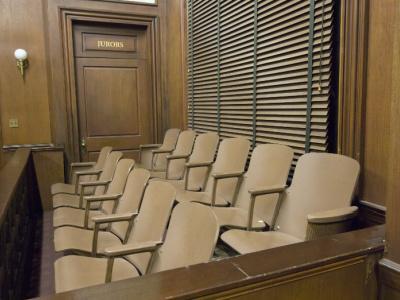Connecticut Implements New Jury Selection System
 One of the key principles of the criminal justice system in the United States is the right of a defendant to be tried by a jury of their peers. That is, the decisions about a person’s guilt or innocence should be made by a group of people who represent the demographics of the community where a defendant resides. However, in recent years, some questions have been raised about whether juries in Connecticut criminal cases truly represent a cross-section of the community. In response to these concerns, laws have been passed that have put new rules in place that will affect juror summons in the state. For defendants who are facing criminal charges, an attorney can provide guidance on how these rules may affect them, and they can work with the defendant to develop a successful defense strategy.
One of the key principles of the criminal justice system in the United States is the right of a defendant to be tried by a jury of their peers. That is, the decisions about a person’s guilt or innocence should be made by a group of people who represent the demographics of the community where a defendant resides. However, in recent years, some questions have been raised about whether juries in Connecticut criminal cases truly represent a cross-section of the community. In response to these concerns, laws have been passed that have put new rules in place that will affect juror summons in the state. For defendants who are facing criminal charges, an attorney can provide guidance on how these rules may affect them, and they can work with the defendant to develop a successful defense strategy.
State v. Holmes and the Jury Selection Task Force
Changes to Connecticut’s jury selection process were instigated following a ruling by the Connecticut Supreme Court in 2019. In the case of State v. Holmes, the defendant had appealed a conviction on charges of murder, home invasion, and criminal possession of a firearm based on the claim that the prosecutor had improperly excused a juror based on their race. The defendant was African-American, and he claimed that the juror in question was excused because he was also Black. The prosecutor challenged these claims, stating that the juror was excused because he had stated that he had a distrust of law enforcement.
When reviewing the case, the Connecticut Supreme Court ruled that the prosecutor’s excusal of the juror was acceptable. Even though the juror stated that his reasons for distrust of law enforcement were based on his life experiences as an African-American, the court ruled that these opinions were race-neutral and a valid reason for excluding a juror.
However, due to concerns about implicit bias in the justice system, the Supreme Court appointed a Jury Selection Task Force to study how racial discrimination affects the selection of juries and consider what steps could be taken to ensure that juries will be more diverse and better represent the makeup of the state’s population. Based on the findings of this task force, new rules have been put in place changing how jurors are summoned.
Rules Regarding Juror Summons and Selection in Connecticut
In 2021, Connecticut passed a law implementing the recommendations of the Jury Selection Task Force. Different provisions of this law went into effect between 2021 and 2023, including:
-
Expanded juror eligibility - Starting on October 1, 2021, permanent residents of the United States began being eligible to serve on juries in Connecticut. The time frame after which convicted felons may serve on juries was shortened from seven years to three years. The minimum age at which a person can claim an exemption from serving on a jury was raised from 70 to 75. These changes were meant to expand the number of people who may be summoned as jurors.
-
Jury questionnaires and records - Starting on October 1, 2022, additional questions were added to the questionnaires sent to prospective jurors. These questionnaires now include information about age, race, occupation, gender, and other demographic data. The judicial branch will use this information to compile reports on the demographic makeup of people who receive jury summons, serve on juries, and are subject to challenges. The judicial branch is also required to report on the number of jurors who were summoned from each town and served on juries.
-
Proportional representation - Starting on July 1, 2023, a formula must be used to ensure that the number of jurors selected from each town is proportional to the town’s population within a judicial district. This is meant to ensure that each town and community in a district is properly represented when juries are selected.
Contact Our Connecticut Criminal Defense Lawyer
Jury selection is a crucial component of a criminal trial, and defendants who are facing criminal charges will need to work with a lawyer who understands how Connecticut’s jury selection rules can be implemented effectively. At Woolf & Ross Law Firm, LLC, our Hartford criminal defense attorney can provide guidance on the best strategies to use when preparing for a trial and arguing a case in the courtroom. We work to ensure that our clients’ rights are protected at all times while helping them resolve their cases successfully. Contact our firm today at 860-290-8690 to set up a free consultation.






